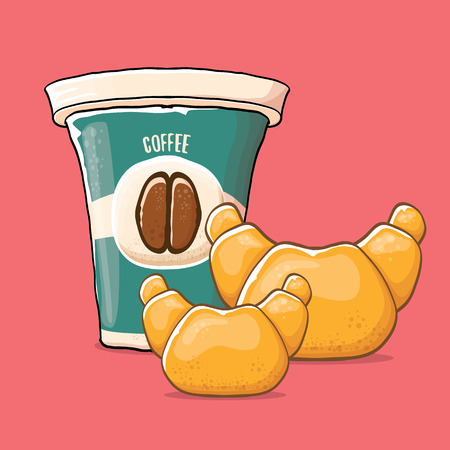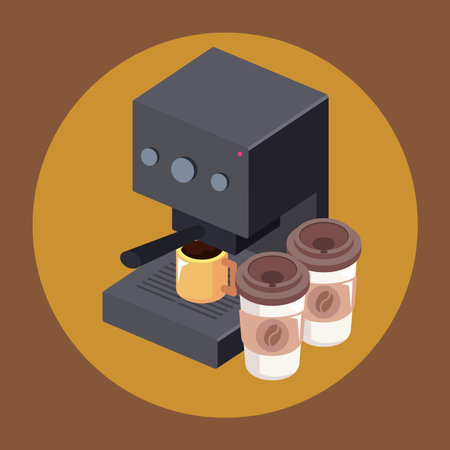1. Understanding the Coffee Business Landscape in the U.S.
Before deciding whether to open a franchise or an independent coffee shop, its important to understand the current state of the coffee industry in the United States. Coffee isnt just a beverage here—its a daily ritual and a booming business. From national chains to neighborhood cafés, Americans love their coffee, and they have more options than ever before.
Market Trends in the U.S. Coffee Industry
The U.S. coffee market is one of the largest in the world. According to recent industry reports, over 60% of Americans drink coffee daily, and the average coffee drinker consumes about three cups per day. While traditional drip coffee remains popular, theres been a noticeable shift toward higher-quality brews and unique café experiences.
Key Trends:
- Rise of Specialty Coffee: Consumers are willing to pay more for premium beans, expert brewing methods, and ethically sourced products.
- Sustainability Matters: More customers are choosing brands that support environmental efforts like compostable cups or fair-trade beans.
- Technology Integration: Mobile ordering, loyalty apps, and contactless payments are becoming standard expectations.
- Diverse Menu Offerings: Beyond espresso, cafes now offer plant-based milks, cold brews, seasonal drinks, and snacks tailored to health-conscious lifestyles.
What Do American Consumers Want?
Coffee drinkers in the U.S. are looking for more than just caffeine—they’re seeking experience, quality, and convenience. Independent cafés often attract customers who value atmosphere and local identity, while franchises appeal to those who appreciate consistency and speed.
| Consumer Preference | Description |
|---|---|
| Taste & Quality | A growing number of customers prefer specialty-grade coffee with distinct flavors. |
| Sustainability | Cafes that use eco-friendly practices gain customer loyalty. |
| Convenience | Fast service and mobile ordering are key for busy consumers. |
| Aesthetic & Experience | A cozy ambiance or Instagram-worthy design can set a café apart. |
The Growing Demand for Specialty Coffee
The specialty coffee segment has seen steady growth over the past decade. These cafes focus on high-quality beans, expert baristas, and unique brewing methods like pour-over or siphon brewing. Whether it’s a single-origin espresso shot or a nitro cold brew on tap, consumers are becoming more educated—and more selective—about their cup of joe.
This demand is creating opportunities for both franchise operators looking to join established brands known for quality and independent entrepreneurs aiming to create something truly personal and unique.
2. What It Means to Own a Franchise Café
Owning a franchise café means youre joining an established brand that already has a proven system and customer base. Its like plugging into a business model thats ready to go, with fewer unknowns than starting from scratch. But it also comes with specific rules and limitations you’ll need to follow. Let’s break down what this really looks like.
Brand Recognition
One of the biggest perks of owning a franchise café is instant name recognition. Customers are more likely to visit your café if they already know and trust the brand. This can give you a major head start compared to launching a new, unknown coffee shop.
Examples of Popular Coffee Franchises in the U.S.
| Franchise Brand | Known For | Founded |
|---|---|---|
| Starbucks (licensed stores only) | Premium coffee, global presence | 1971 |
| Dunkin | Affordable coffee & donuts | 1950 |
| The Human Bean | Drive-thru model, specialty drinks | 1998 |
Corporate Support
Franchise owners benefit from built-in support systems. This includes training programs, marketing tools, inventory sourcing, and even real estate help. You’re not alone in figuring things out, which can make your journey into café ownership smoother.
Common Types of Support Offered by Franchisors
- Training: Initial and ongoing training for you and your staff.
- Marketing: National ad campaigns and local marketing materials.
- Operations: Established procedures for day-to-day management.
- Supply Chain: Access to approved suppliers with consistent pricing.
- Technology: POS systems, apps, and loyalty programs.
Operational Rules and Limitations
This is where franchising can feel restrictive. You’ll have to stick to the franchisor’s rules about menu items, store design, hours of operation, branding, and even pricing in some cases. Creativity is limited because consistency is key across all locations.
The Trade-Offs: Freedom vs Structure
| Aspect | Franchise Café | Description |
|---|---|---|
| Menu Control | No or Limited | You must serve approved items only. |
| Store Design | No Flexibility | You must follow brand guidelines strictly. |
| Marketing Campaigns | Centrally Managed | You contribute to national efforts but have little say in direction. |
| Business Decisions | Some Restrictions Apply | You need franchisor approval for changes or expansions. |
The Bottom Line on Franchising
If youre looking for a lower-risk way to enter the coffee industry with strong support and a known brand, franchising might be the right fit. Just be prepared to trade some creative freedom for structure and consistency.

3. Running an Independent Café: Pros and Cons
If youre the kind of person who dreams of creating a coffee shop thats truly one-of-a-kind, opening an independent café might be your calling. Unlike franchises, which come with a set playbook, independent cafés give you full control—from the espresso beans to the wall art. But with that freedom comes a fair share of challenges.
Creative Control and Unique Branding
One of the biggest perks of running your own café is having complete creative freedom. You get to decide the look and feel of your space, craft your own menu, and create a brand voice that reflects your personality or values. Want to serve vegan pastries only? Go for it. Prefer minimalist Scandinavian décor over rustic farmhouse vibes? The choice is all yours.
The Challenge of Starting from Scratch
On the flip side, building a business from the ground up means everything falls on your shoulders—from finding the right location to designing your logo and developing recipes. There’s no corporate support team to lean on, so you’ll need to wear many hats: entrepreneur, barista trainer, marketer, and more.
Costs and Investments
Starting an independent coffee shop can be more affordable upfront compared to some franchise fees, but youll still need significant capital for equipment, renovations, permits, inventory, and staffing. Plus, without a known brand name behind you, attracting customers early on can take extra time and marketing effort.
Pros and Cons at a Glance
| Pros | Cons |
|---|---|
| Total creative control over branding and menu | No built-in brand recognition or customer base |
| Freedom to source local or specialty ingredients | Higher risk and responsibility on the owner |
| Opportunity to build a unique community vibe | Must develop all systems (training, operations) from scratch |
| Flexible pricing and product experimentation | Marketing and promotion rely solely on your efforts |
Is It Right for You?
If youre passionate about coffee and have a clear vision for what kind of café you want to build—plus the drive to handle all aspects of the business—then going independent could be incredibly rewarding. It’s not easy, but for many owners, the ability to shape every detail makes it worth the hustle.
4. Startup Costs and Financial Considerations
When deciding between a franchise and an independent coffee shop, one of the most important factors to consider is the financial commitment. From upfront investment to long-term profitability, understanding where your money goes can help you choose the right path for your coffee business dreams.
Initial Investment
The startup costs for a franchise are usually higher than opening an independent café. With a franchise, youre paying not just for equipment and build-out, but also for the brand name, training, and support. Independent cafés offer more flexibility in budgeting but may require more effort in planning and setup.
| Expense Category | Franchise Café | Independent Café |
|---|---|---|
| Franchise Fee | $20,000–$50,000+ | $0 |
| Equipment & Build-Out | $100,000–$300,000 | $80,000–$250,000 |
| Total Estimated Startup Cost | $150,000–$500,000+ | $80,000–$300,000 |
Ongoing Fees and Royalties
If you go with a franchise, expect ongoing royalty fees—usually a percentage of your monthly revenue—and possibly marketing contributions. Independent coffee shops don’t have these fees but will need to budget separately for advertising and operational expenses.
| Cost Type | Franchise Café | Independent Café |
|---|---|---|
| Royalty Fees | 4%–8% of revenue/month | $0 |
| Marketing Fees | 1%–4% of revenue/month | You decide your own budget |
| Total Ongoing Fees (monthly) | $1,500–$5,000+ | Your call—it varies widely |
Potential Profitability
A franchise may bring faster returns due to brand recognition and built-in customer trust. However, profit margins can be lower due to royalty fees and limited pricing control. Independent cafés have greater flexibility and potentially higher margins—but they often take longer to establish a steady customer base.
Main Profit Drivers:
- Franchise: Strong brand pull, corporate support, consistent product quality.
- Independent: Creative freedom, local appeal, personalized experience.
A Quick Comparison:
| Franchise Café | Independent Café | |
|---|---|---|
| Earning Potential (Year 1) | $50K–$150K (after expenses) | $20K–$100K (after expenses) |
| Earning Potential (Long-Term) | Sustainable but capped by royalties/brand rules | POTENTIALLY higher with growth & loyal base |
| Pace of Growth | Faster due to established systems & branding | Takes time but offers creative control & uniqueness |
No matter which model you choose, it’s essential to run the numbers carefully. A clear financial plan can make the difference between struggling to break even and brewing up long-term success.
5. Which Model Fits Your Personality and Goals?
Choosing between opening a franchise café or starting your own independent coffee shop isnt just a business decision—its also a personal one. Your personality, lifestyle goals, and appetite for risk all play a major role in determining which path is right for you. Let’s break it down to help you figure out where you might thrive.
Are You More of a Rule Follower or a Rule Maker?
If you enjoy following established systems and prefer a clear roadmap, then a franchise might be your style. Franchises offer proven business models, branding, marketing support, and training—all ideal if you like structure and consistency. On the other hand, if youre someone who thrives on creativity, wants full control over your menu, store design, and brand identity, then an independent café might be the better fit.
How Much Risk Are You Comfortable Taking?
Every business involves some level of risk, but franchises typically carry less risk because they come with a built-in customer base and operational support. Independent cafés can offer higher rewards and more freedom, but they also come with greater uncertainty. Think about how much financial and emotional risk youre willing to take on before making a decision.
Franchise vs. Independent: Personal Fit Comparison
| Personal Factor | Franchise Café | Independent Café |
|---|---|---|
| Control & Creativity | Limited – must follow brand guidelines | Full creative freedom |
| Risk Tolerance | Lower – proven systems reduce risk | Higher – success depends on your strategy |
| Lifestyle Fit | Structured hours and operations set by franchisor | Flexible but potentially more demanding schedule |
| Support System | Strong support from franchisor (training, marketing) | You build your own network from scratch |
| Long-Term Goals | Ideal for scaling within a known brand | Best for building something unique or legacy-driven |
Lifestyle Goals Matter Too
If your goal is work-life balance with predictable hours, franchises may offer more stability and streamlined operations that make that possible. However, if youre passionate about crafting every detail of your café experience—even if it means longer hours at first—an independent model allows you to pour your heart into every aspect of the business.
Your Values Drive Your Decision
Do you value community connection and expressing individuality? Independent cafés often become neighborhood staples with a local vibe. If youre more focused on scalability, national brand recognition, and quicker returns on investment, a franchise could align better with your values.
The Bottom Line:
This isnt just about coffee—its about how you want to live and work every day. Think honestly about what motivates you, what kind of lifestyle you want, and how much uncertainty youre comfortable handling. The right choice is the one that fits both your business dreams and personal reality.


